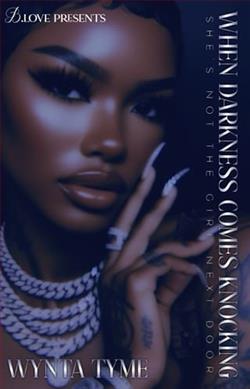Page 94 of The Princess of Las Vegas
In the parking lot, the UPS guy was leaving. He saw her inthe window and waved. She waved back.
“And why does ‘keeping an eye on me’ sound like a euphemism?” she asked. But she knew the answer. Because it was. She asked herself when Frankie had become such a prick. But she knew the answer to that, too. He probably had been all along.
* * *
The dress was gorgeous. Edwardian, said the stylist. It was dark blue—almost black. The woman was older than Betsy and said she had worked on a dozen Vegas shows. She stressed that she had done her homework meticulously to get Betsy ready for this soiree. The two of them refined how the gown fit in her bedroom, while Rory and Damon were banished to the living room, where they played card games with actual playing cards. It was as if they were trying to channel Vegas gangsters from 1955. In the background, the cable news was continuing to cover the queen’s death.
The two men refused to tell Betsy where Marisa was when she asked, and the stylist knew enough not to get involved—or, perhaps, she was involved. But she was very nice and solemnly pointed out to Betsy the dress’s copious attributes, such as its fishtail shape—the way it swooshed out like fins at the floor—and subtle ruching.
“Ruching?” asked Betsy.
“Look at the way the velvet is pleated,” she explained with a southern accent. “It looks like ripples.”
They had a necklace for her with the biggest rock she had ever seen on a piece of jewelry.
“It’s not real, right?” she asked, lowering her voice.
“It’s costume,” the woman reassured her.
In an old-fashioned, cloth-covered three-ring binder, there were photos of Diana from the moment they were endeavoring to replicate: a 1985 White House dinner when, a little before midnight, Nancy Reagan told John Travolta that the princess hoped to dance with him. The actor was awed and agreed, and the floor cleared for the two of them. The photos of the celebrity dyad, the stylist told Betsy, had created a wild fervor in the press, and these were some of her favorite images on the Internet. There was also a page Lara Kozlov had added with details of a trip Princess Diana had made to Moscow in 1995.
“Is there going to be a John Travolta at Fort Knocks tonight?” Betsy wondered.
“There could be, but I doubt it,” she said. “He sang a bit, but it’s not like he has the catalog for a tribute show. And he isn’t dead. The people who take on performers who are still alive tend to be A-listers. It’s mostly B-listers who take on the dead.” She had been on the floor sewing the hem with inspired dexterity when what she had just implied registered. She stared up at Betsy and said, her voice almost furtive, “I hope I didn’t insult your family. Your sister is obviously an A-lister. There are exceptions. You’ll meet some tonight.”
“I wasn’t insulted.”
“I hadn’t meant anything by that remark.”
It dawned on Betsy that this woman dressing her was scared of her. No, that wasn’t it: she was scared of the two men in the living room. The stylist stood up and glanced at the door, which was shut, and then touched the wings of Betsy’s hair with the fingertips of both hands. “I mean that,” she went on. “You know, about the exceptions. There are lots of talented artists who take on the dead and lots of talented artists who take on the living. Just because your sister’s residency is at the BP—”
“I understand,” Betsy murmured. “May I ask your name? I just realized: I don’t know it. I’m sorry.” She felt very much like the princess in this gown and felt that the princess would have asked.
“Mitzi,” replied the woman, uncomfortable that Betsy had inquired. “But this is just a freelance gig for me. I’m not part of anything.”
Twenty minutes later, when Mitzi felt that she had brought the princess back from the dead, she took her by the elbow and led her to the full-length mirror that hung behind the door and showed her how much she resembled Lady Di from her evening with the Reagans and John Travolta. Betsy agreed that Mitzi had worked serious magic. She looked exactly like Diana Spencer when she had enchanted the crowd at the White House.
And that meant that she looked as much like her sister as she ever had in her life.
* * *
It was as if she were at a costume party or masquerade ball. A part of Betsy’s mind was focused squarely on Marisa and why she was doing this, and what she and Marisa would do once the Futurium monsters had returned her daughter to her. They were leaving Las Vegas, that was clear. They were getting out. They would return to Vermont, the only world they had ever really known. She would find them another two-bedroom apartment in Burlington surrounded by college kids half her age, and the counseling service would rehire her.
Somehow, she doubted they’d follow Marisa and her back east. She didn’t think she was worth the effort, and she didn’t believe they wanted this to escalate any further. Marisa was thirteen, and nothing Betsy was involved in was worth upping the ante that way.
No, she was kidding herself. People were dead. Rory, Frankie had told her, was crazy.
The awful truth was that she had no idea what they would do, because they knew how much she knew: the meetings she’d scheduled, the names of the women and men who were there. The involvement of one of Washington’s most volatile congressional reps, a woman who, at the very least, wanted to be a U.S. senator.
And once you kidnap a thirteen-year-old girl, you’ve crossed an immutable line. There’s no going back. The fact wasn’t lost on her that both Rory and Damon were here with her at Fort Knocks, either trailing her or standing beside her like the president’s Secret Service. Damon was going to speak in a few minutes and explain why they had assembled such a remarkable array of also-ran talent, but he still seemed to have time to play the room and keep an eye on her.
For the sake of her daughter, she was doing her very best to be Diana Spencer—aka Crissy Dowling—at the meet and greet. There must have been forty of them in a room that was too small for a ballroom but too big for a meeting room, and while most of the performers were pleasant—they were desperate to please, because approval was currency—they were all hanging on financially by the thinnest of threads. Sonny and Cher, Prince, Mick Jagger. Aretha Franklin. A group someone had to tell her was a Herman’s Hermits cover band, because Futurium had wanted British cover bands here. Many of the guests were musicians as well as singers, and they’d take any gig they could get, even if it meant playing the piano in a hotel lobby while the arriving hordes in their flip-flops and cargo pants stood in the check-in lines that snaked in square S’s back and forth, back and forth, and the pianist was competing with the mechanical bells and whistles (and growls) of the video slots, and no one was listening to the pianist because everyone was looking at their phones or slurping their first beers or piña coladas. And they were all, it seemed, screwed and abused by their agents—corrupt little worms, according to Buddy Holly—if they even had representation. As the performers were volunteering their tales of woe, Betsy could not get over the endless ways they managed to see their two- and three-hundred-dollar paychecks gnawed to next to nothing by the casinos and their own management.
And then there were the notorious four-wall gigs: a performer would rent space (or a room with “four walls”) at the casino. It looked like a residency, but it wasn’t. The singers had to do all of their own marketing and get seats in the seats, which was an out-of-pocket expense on top of the rent and paying the crew, and the casino was unlikely to even bother to promote the show on a marquee or inside the concourse. After all, they had their premier shows to sell.
“I lost eighteen thousand dollars in three months at one,” Aretha Franklin told Betsy, shaking her head, and Sonny and Cher lamented how they’d lost even more with a four-wall gig at Fort Knocks.
She was digesting this when she saw Lara Kozlov approaching. She had a slim leather satchel over her shoulder: it was more of an attaché than a purse.















